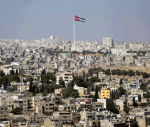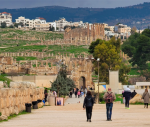You are here
Aramram — challenge and controversy
Oct 28,2014 - Last updated at Oct 28,2014
Life would be dull if we all agreed with each other. Fortunately, differences of opinion are inevitable. They are also healthy.
Whether disagreement revolves around what to watch on TV or where to eat, an open discussion will often lead to a better choice being made.
The same applies to policy issues.
An exchange of views, say for the energy sector, means that people can evaluate all the options and share information on the pros and cons.
It should also mean that when a policy decision is made, it is based on sounder knowledge which will secure greater acceptance from the public.
Some might argue that challenging authority and stimulating controversy is dangerous. But it would be more dangerous to suppress opinion and force it underground, where it would breed hostility and resentment.
Debate does not mean encouraging noisy slanging matches. It would be wrong to encourage people to think that if they shout loud enough, they will get their way.
Calm, rational and well-informed analysis of the issues is the best way to support the development of new policies.
That was no doubt the aim of His Majesty King Abdullah when he described “active citizenship” as local communities engaging in constructive debate on issues facing society and resolving differences for the benefit of society as a whole.
It is also the aim of an innovative new series of programmes being broadcast on the web TV station Aramram [www.aramram.com].
Written, produced and presented by Jordanians, it tackles some of the biggest economic challenges facing Jordan today.
The aim of the production team is to provide information on issues that touch their everyday lives.
They want to mobilise grassroots opinion and encourage debate among members of the public.
In doing so, they hope to change the mindset of those who think that their voice does not count and to provoke a degree of controversy on some of the choices facing Jordan.
Each programme opens with a brief presentation by economist Yusuf Mansur. There follows a short film illustrating some of the key aspects of the problem.
Mansur then chairs a debate between two experts in the field, followed by short comments by members of the public from all parts of the country.
That is not the end of the story, because Aramram’s website then provides a platform for comments from anyone who wants to express a view.
The first such programme covered unemployment [http://www.aramram.com/node/7274].
It highlighted the statistics on youth unemployment and the fact that Jordan has the third lowest percentage of female participation in the labour market in the world.
It linked joblessness with the complaints by companies about the lack of suitable skills among new graduates.
The experts said that education and the mindset of students needs to be much more flexible to meet the demands of employers. Better transport would also help boost employment.
The second programme featured energy [http://www.aramram.com/node/7295].
It questioned why there was a crisis when Jordan had plentiful deposits of oil shale and huge potential for renewable energy.
The commentators did not shy away from identifying the frequency of ministerial changes and bureaucratic issues as root causes of the problem.
Various steps were suggested to speed up the implementation of a coherent energy strategy.
There are more programmes in the pipeline covering transport, water and the rentier state.
The most encouraging aspect of this initiative is not the professionalism of the programmes (which is high), nor the quality of the debate (honest and controversial), but the response of the viewers.
The programmes have been widely watched, with more than 15,000 people contributing to a vigorous online debate (https://www.facebook.com/MalnaSeries/).
We are pleased to support Aramram in producing these programmes as part of our Arab Partnership Programme.
But the vital factor is that the policy debate it has stimulated is entirely Jordanian led and owned.
The writer is British ambassador to Jordan. He contributed this article to The Jordan Times.












